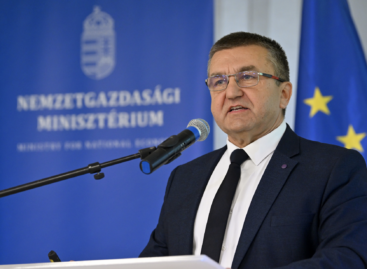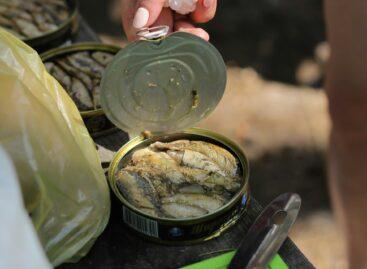Magazine: ECR Europe’s conference, Brussels (Part 5)
On the second day of the conference work continued in four sections: 1. ‘Logistics cooperation in rail transport’ was organised by ECR Poland. They invited speakers from Colgate-Palmolive, Heinz, Mars and Value Chain Vision. Experts agreed that 2013 is the year of rail transport in the logistics sector. The Polish initiated a pilot project where such special containers are tested which can be easily transported by trucks, trains and ships as well. JIT (Joint in Transport Cooperative) coordinates the project, where the main goal is full trains and the customers are Mondelez International, SC Johnson, Nestlé and Colgate-Palmolive, and the logistics service provider is Seacon Logistics. 2. ‘The priorities of top managers’ section introduced the results of a survey called Management Summary Europe, conducted by GfK BelgiLux on the views of major FMCG companies about how to deal with the challenges of 2013. Participants were 400 FMCG top managers from 22 European countries (including Hungary). Nearly 55 percent of managers named consumer marketing to be the most important area, product/brand/formula came in second and the economy/consumer demand were the third most important themes. 3. EuroCommerce and AIM organised the section on cooperation in practice. Work in this section focused on the elements of best practice in the food value chain, elaborating on the difference between what is considered fair and unfair. The voluntary guidelines that are being laid down were analysed. Participants stressed the significance of written agreements and also touched upon sensitive issues such as money asked for listing a product. 4. The fourth section was about mobile phones and an abundance of data. McKinsey introduced the problems and opportunities generated by ‘Big Data’. Their view is that online is the new mass media and social platforms are the places where data is generated and shared. According to expert opinion this year 4 exabyte of information is generated – more than in the last 5,000 years! By 2020 this value will be 65 times bigger and there will be 25 billion tools capable of accessing the internet. Soon instead of moving products efficiently the real market advantage will be getting information and making decisions faster. In a second block of sections there were five working groups with the following topics: 1. on-shelf availability – by a professor from the University of Leeds, experts form Ahold and P&G; 2. present and future of retail – by GfK Germany and Europanet; 3. analysing customers and in-store activities – by ECR Ireland and the representatives of Findus, Kerry Foods, BWG Foods and Unilever; 4. quick result from the cooperation of major companies – by ‘The Consumer Goods Forum’ and the representatives of Ahold, CGF, Metro, Nestlé and Unilever; 5. INSEAD and ECR LaB’s training programme – Carrefour and ECR Europe both sent their representatives and Next Generation Leader Award winner Maggie Chan (Unilever USA) also came and contributed. A plenary session closed the conference, where Vodafone Turkey managing director Serpil Timuray talked about the significance of smartphones in developed and developing countries. Swedish economist and writer Kjell Nordström spoke about sharing and cooperation, telling that these weren’t only social phenomena but also a necessity in order to survive. In his opinion companies can profit from being flexible and multifunctional, and the appearance of the 3D printer makes mass production redundant and opens up new dimensions of individualisation. ECR Europe’s two co-chairs, Carrefour Europe’s executive director Thomas Hübner and Unilever Europe president Jan Zijderveld concluded the conference by saying that if those present at the conference unite their forces, real changes can be made on global and European level for a better future.
Related news
Related news
KSH: Gross average earnings were HUF 605,400 in February 2024, 14.0 percent higher than a year earlier
In February 2024, the gross average earnings of those employed…
Read more >Sándor Czomba: 566 micro, small and medium-sized enterprises receive capacity-building support
566 people successfully applied for the capacity expansion support aimed…
Read more >UN: worldwide food insecurity continued to increase last year
The insecurity of the food supply has increased further in…
Read more >



